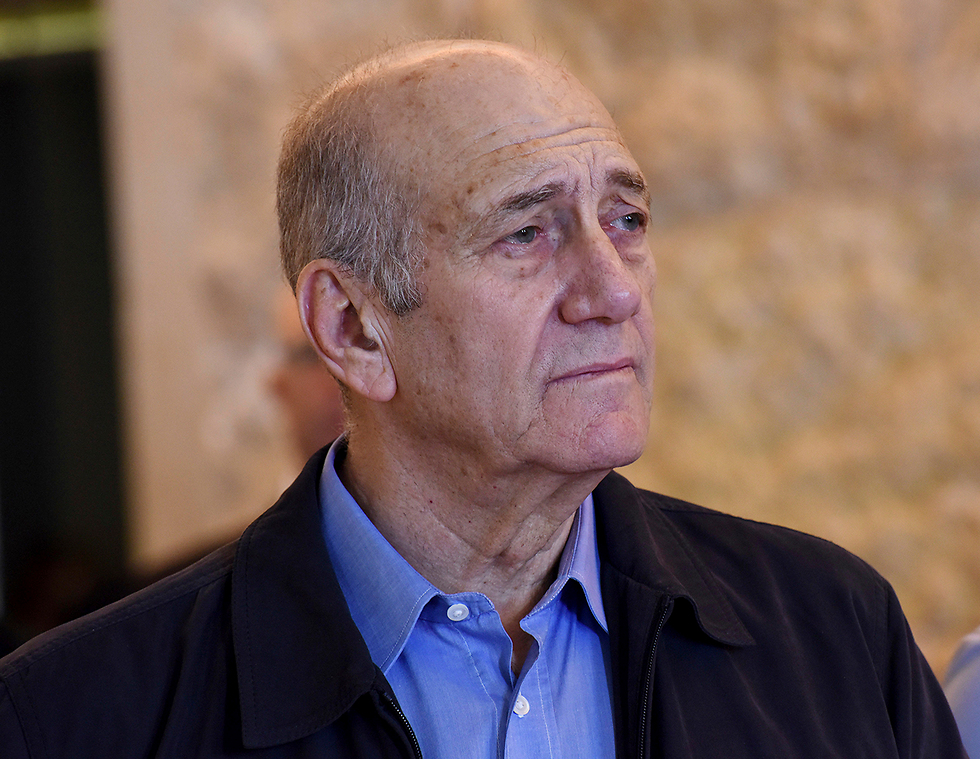That’s what happened in the “Bar-On Hebron” scandal in 1997. The affair was first revealed by journalist Ayala Hasson on Channel 1 in late January, and by late April the attorney general and the state attorney had already decided to close the case. They invented the term “a public report.”
The investigation into former Prime Minister Ehud Barak’s party-funding affair took much longer, but at no stage was there a recommendation to indict Barak, and he stepped down in any event in early 2001.

Netanyahu (L) doesn’t want and isn’t demanding a quick decision in his cases; Mandelblit, it seems, isn’t interested in making a quick decision (Photo: Marc Israel Sellem)
In October 2003, in the Greek island affair involving Prime Minister Ariel Sharon and his son Gilad, police recommended against an indictment. State Attorney Edna Arbel was in favor of an indictment, but Attorney General Menachem Mazuz closed the case in April 2004.
In the cash envelopes and Rishon Tours affairs, which led to Ehud Olmert’s resignation, Mazuz made a decision to indict the prime minister within four to 10 months, respectively.
It’s acceptable to say, and this is what the current attorney general’s associates are saying, that in this kind of investigations you have to “check every lead,” “leave no stone unturned,” and other clichés. In reality, this is what is happening: Cases 1000 and 2000 have been going on for more than a year. The “examination” processes ahead of the decision to launch an investigation took a long time; Attorney General Avichai Mandelblit was looking into the recordings of the prime minister and the Yedioth Ahronoth publisher for months without doing a thing.
Now that the investigations have been completed, we are being told that further probes will be needed, and then there will be a gradual process at the State Attorney’s Office and at the attorney general’s office, which may take nine to 12 months. Considering the fact that every investigation activity in these cases is supervised by representatives from the State Attorney’s Office, and that some activities require the attorney general’s approval, why does it have to take so long?
This is a major question. In my opinion, there is no factual basis to the harsh accusations that Mandelblit isn’t being loyal to his job. But one thing is certain: Both he and Prime Minister Benjamin Netanyahu have a clear tactic of avoiding quick decisions. Netanyahu doesn’t want and isn’t demanding (and he knows how to demand) a quick decision in his cases; and Mandelblit, it seems, isn’t interested in making a quick decision. There is time, and permission is granted.

In the affairs that led to Ehud Olmert’s resignation, then-Attorney General Mazuz made a decision to indict the prime minister within four to 10 months (Photo: AP)
Well, there is no time. Israel is being plunged into strong whirlpools that are undermining the public’s faith in its institutions, diverting the attention from genuinely important matters (like the military preparations in the north) and, most importantly, splitting the Israeli society. The dynamic, in which the head of the system is subject to several criminal investigations, is leading Israel to a dangerous swamp. If the prime minister is convicted, he is expected to receive a jail sentence; a state can’t be run reasonably this way.
Years ago, even before the police recommended indicting Olmert, I wrote that even if he is capable of bringing about a peace agreement—he must resign in light of corruption suspicions. Netanyahu should have resigned too, but unlike Olmert, he enjoys significant public support, as well as the support of many spineless and scared politicians. They like criticizing him off the record, but won’t voice their criticism in public.
Netanyahu is the first person who should have stood up and demanded a decision in his investigations, but he is playing for time. There is an unfunny joke about a veterinarian who is forced to cut off a dog’s tail. Don’t worry, he tells the dog’s owner, we’ll try to make it painless—we’ll remove one piece every month over the course of a year.
The attorney general must restore the healthy and necessary practice of avoiding foot-dragging, and make a quick and efficient decision on whether to indict the prime minister or not. Not within a year, and not within six months. Israel can’t afford the current madness.
Nadav Eyal is Channel 10's chief international correspondent.
Why are the Netanyahu probes taking so long? : http://ift.tt/2oDQYuT
No comments:
Post a Comment